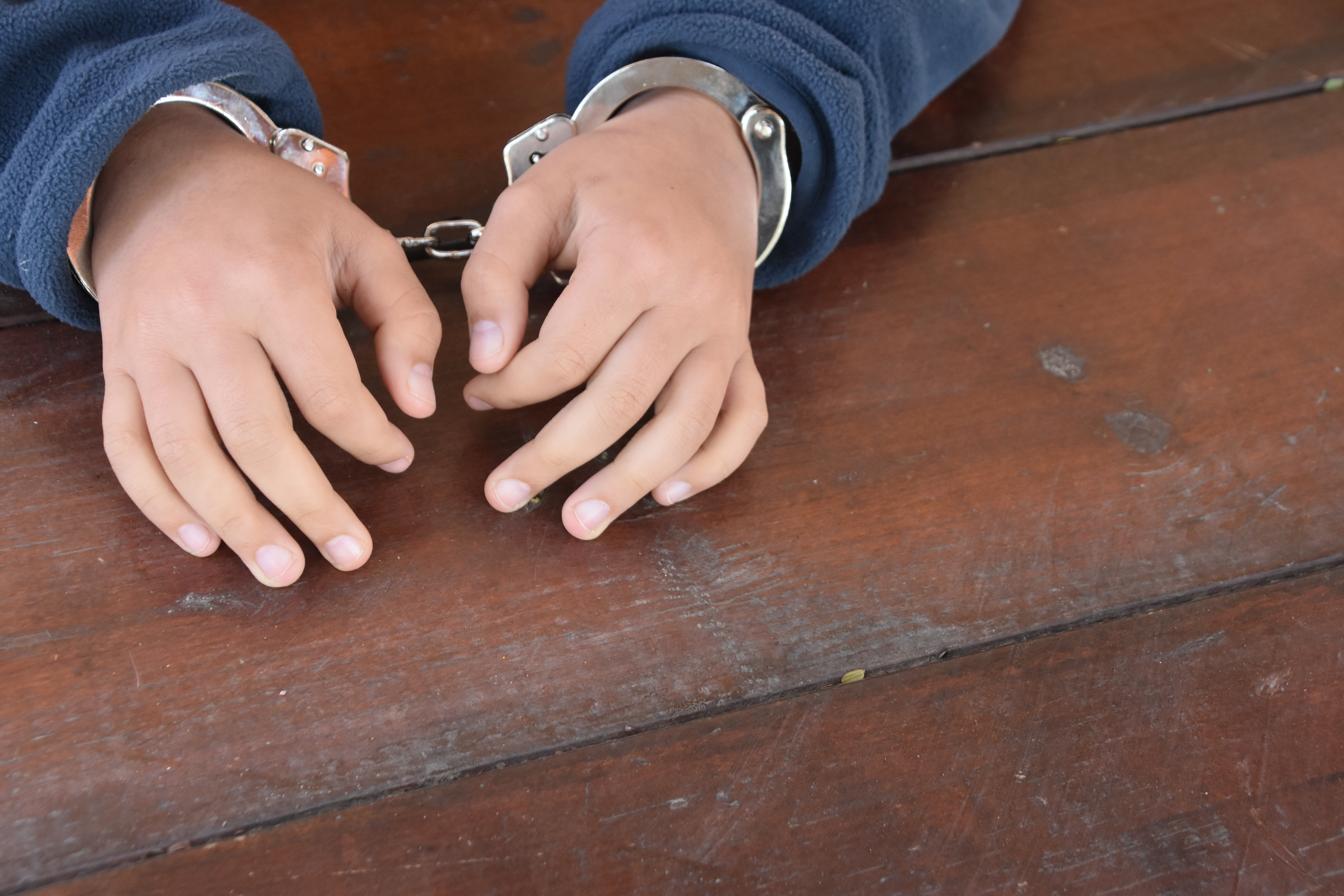D.C. Police to Stop Handcuffing Kids 12 and Under — Critics Blast Them for Doing So At All
by Tanasia KenneyAfter several incidents of police handcuffing children, the Washington, D.C. police department says it will no longer place juvenile suspects aged 12 and younger in handcuffs.
Metropolitan Police Department Chief Peter Newsham announced the policy change on Tuesday, according to NBC Washington. The shift was prompted by a series of disturbing incidents caught on video involving officers detaining young minors.

“We want the public to know that when we do come in contact with kids who have been involved in criminal behavior, they’re going to be treated very, very carefully,” Newsham said. “The default will be not to place handcuffs on juveniles under 12.”
Per the new policy, MPD officers are barred from handcuffing kids “unless the juvenile presents a danger to themselves or others.” It also gives officers the discretion to cuff minors aged 13 to 17, depending on the severity of the crime and “circumstances of the interaction.”
News of the policy change sparked a number of reactions, primarily from social media critics who questioned why police were handcuffing children in the first place.
“Why is this even a win?” one online user wrote. “Like this shouldn’t have been happening either way!
“Imagine asking a 12-year-old for ID and they got none,” another chimed in. “Then boom they in handcuffs! Smh.”
Another opined: “If a grown person needs handcuffs to restrain a 12-year-old they shouldn’t be a police officer.”
Others offered a different opinion, arguing that a “blanket policy” on arrests could prove dangerous for police officers.
“Not sure this is good,” a Twitter user wrote, noting that “youth and innocence are not mutually exclusive. Kids absolutely have the capacity to commit evil deeds, and sometimes do so.”
Another agreed, saying the rule should be discretionary: “A shoplifter? Maybe. But sadly, some ganged up kids are not going easily. Officer should look out for safety first and inflict as little pain as possible.”
D.C. police faced criticism after officers placed a 10-year-boy in handcuffs near Union Station early last year. The boy was suspected of being involved in an armed robbery, however, an investigation revealed he was “totally innocent,” according to the district attorney’s office.
A week before that, officers were caught on video chasing down and detaining a 9-year-old boy. According to The Washington Post, police officials began efforts to revamp departmental policies with the D.C. attorney general’s office in April in response to the incidents.
D.C. isn’t the only city that has faced scrutiny for handcuffing juveniles. In 2012, police in Milledgeville, Georgia defended its decision to handcuff and subsequently arrest a 6-year-old boy accused of assaulting a principal and damaging school property.
Standard operating procedures by police differ from city to city, and some agencies, including the Atlanta Police Department, don’t have age limitations on handcuffing. For juvenile procedures, officers are simply instructed to “search and restrain the offender as necessary for officer safety,” according to documents obtained by Atlanta Black Star.
In a statement, D.C. Mayor Muriel Bowser said she hoped a gentler approach in interactions with youth would help improve the relationship between the community and police.
“They’re different,” said Bowser. “They are not just little adults. They’re developmentally different, and we want to put them in the right lane to get them the help that they need, divert them from the system if possible, so we are not seeing them when they are older and involved in much more serious crime.”
In addition to online training, officers will also be taught “trauma-informed policing,” de-escalation tactics when dealing with youths, and information about childhood brain development.